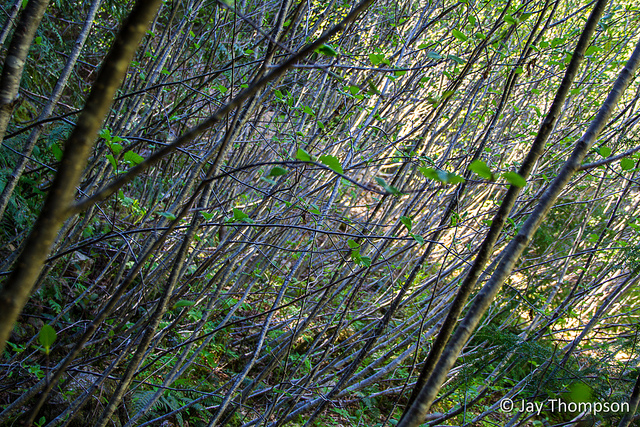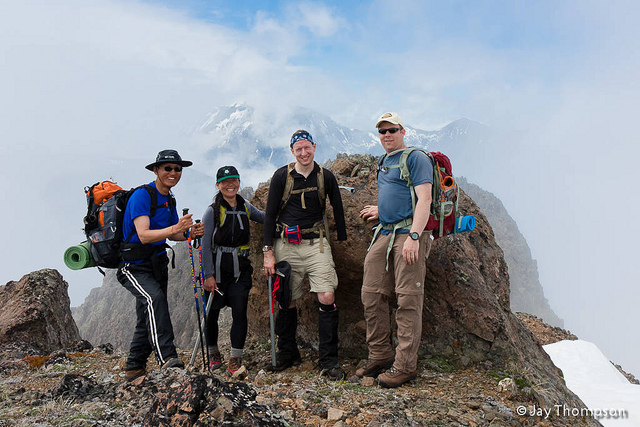
Putting the FUN in fundamental.
I have three rules of hiking that I have adopted from a thru-hiker named Chris Willet who goes by the trail name, Suge. In my opinion, these rules are pretty much perfect, and if you follow them, you'll have a good time (see rule #1.).
Rule #1. If you're not having a good time, you're doing something wrong.
Rule #2. Never leave good trail for bad.
Rule #3. Only a fool leaves a dry place.
I have a great respect for 'Suge' for keeping a record of his adventures and sharing them with others online before blogging was as big a thing as it is now. Every time I have broken rule #2 or #3, the breaking of rule #1 would be not far behind. Suge, if you are reading this, it was reading the sage advice from the pages of your trail journals that inspired me to get out again after a very long hiatus. It has proved to be a lasting inspiration. Thank you my friend. If we ever meet in person, I'll buy you a whole case of Steel Reserve in an attempt to repay you. 


Here are a couple more rules you may find useful.
Always carry these Ten Essentials.
- Navigation. Topographic map and assorted maps in waterproof container plus a magnetic compass, optional altimeter or GPS receiver.
- Sun protection. Sunglasses, sunscreen for lips and skin, hat, clothing for sun protection.
- Insulation. Hat, gloves, jacket, extra clothing for coldest possible weather during current season.
- Illumination. Headlamp, flashlight, batteries. LED bulb is preferred to extend battery life.
- First-aid supplies, plus insect repellent.
- Fire. Butane lighter, matches in waterproof container.
- Repair kit and tools. Knives, multi-tool, scissors, pliers, screwdriver, trowel/shovel, duct tape, cable ties.
- Nutrition. Add extra food for one additional day (for emergency). Dry food is preferred to save weight and usually needs water.
- Hydration. Add extra 2 liters of water for one additional day (for emergency).
- Emergency shelter. Tarp, bivouac sack, space blanket, plastic tube tent, jumbo trash bags, insulated sleeping pad.
Leave No Trace refers to a set of outdoor ethics promoting conservation in the outdoors. It is built on seven principles:
- Plan ahead and prepare,
- Travel and camp on durable surfaces,
- Dispose of waste properly,
- Leave what you find,
- Minimize campfire impacts,
- Respect wildlife,
- Be considerate of other visitors.
Take only photographs, and leave only footprints.